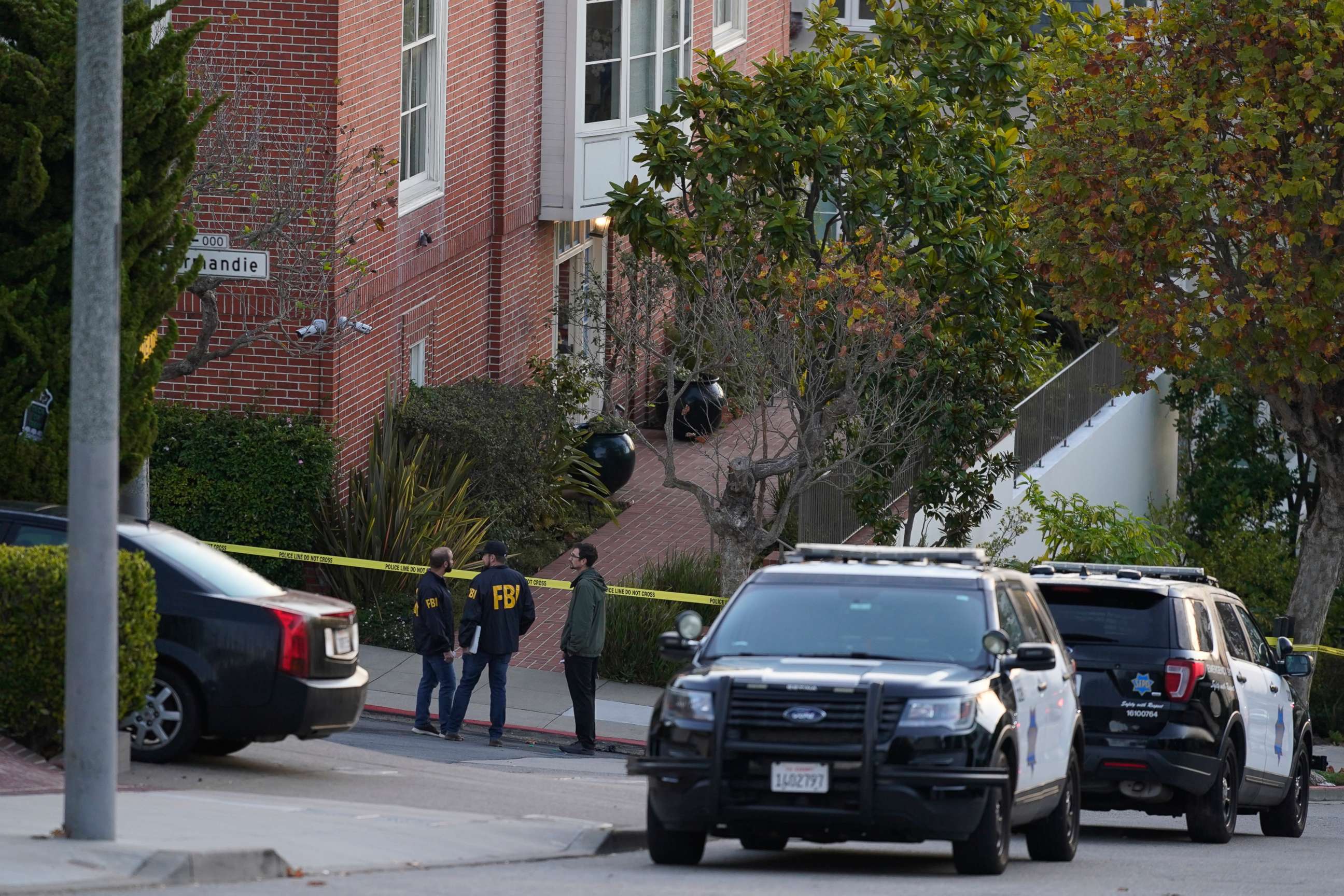Americans express broad concerns about the risk of political violence: POLL
Broad, bipartisan numbers of Americans are concerned that political divisions are increasing the risk of politically motivated violence in this country, with majorities across the board highly concerned about it in a new ABC News/Washington Post poll.
Who gets the blame, however, differs sharply among partisan and ideological groups.

A week after the attack on Paul Pelosi, husband of House Speaker Nancy Pelosi, a vast 88% of adults express concern that political divisions have gotten to the point that there's an increased risk of politically motivated violence in this country. Sixty-three percent in this poll, produced for ABC by Langer Research Associates, are "very" concerned.
By contrast, asking which political party is more to blame for this risk produces a closely divided, strongly partisan result: 31% blame the Republican Party, 25% blame the Democratic Party and 32% blame both parties equally. Just 11% don't blame either or both.
See PDF for full results, charts and tables
Degrees of concern
Overall concern is striking for how it crosses political lines, with rare levels of partisan agreement. Ninety-five percent of Democrats, 87% of Republicans and 86% of independents are concerned about the risk of political violence. So are 95% of liberals, 89% of moderates and 84% of conservatives.
That said, there are gaps as to the degree. About three-quarters of Democrats and liberals are very concerned about the risk, dropping to 58% of conservatives and 56% of Republicans -- albeit still majorities in all cases.

In another political measure, 93% of voters for President Joe Biden in the 2020 election and 83% of Donald Trump voters are concerned about the risk of violence. Although, again, there is a difference in intensity: 78% of Biden voters are very concerned, compared to 55% of Trump voters.
There are other differences among groups. Women are 10 percentage points more apt than men to be very concerned about the risk of politically motivated violence -- 68% vs. 58%. Just among Democrats, this includes a 13-point gap in strong concern between women and men.
Additionally, older people are much more apt to be very concerned, declining linearly with age -- from 75% of those ages 65 and up, down to 47% of 18- to 29-year-olds.
Placing blame
As noted, blame reverts to partisan predispositions. Sixty-six percent of Democrats blame the Republican Party for the risk of violence, and 56% of Republicans blame the Democratic Party. Political independents, for their part, are likeliest to blame both parties equally.
There's also a sharp difference between men and women, reflecting political preferences between the sexes. Women broadly blame the Republican Party more than the Democratic Party (38% vs. 18%). Men blame the Democratic Party over the GOP, albeit more narrowly (32% vs. 24%).
Methodology
This ABC News/Washington Post poll was conducted by landline and cellular telephone from Oct. 30 to Nov. 2, 2022, in English and Spanish, among a random national sample of 1,005 adults. Results have a margin of sampling error of 4.0 percentage points, including the design effect. Partisan divisions in the full sample are 27%-27%-39%, Democrats-Republicans-independents.
The survey was produced for ABC News by Langer Research Associates, with sampling and data collection by Abt Associates of Rockville, Md. See details on the survey’s methodology here.




